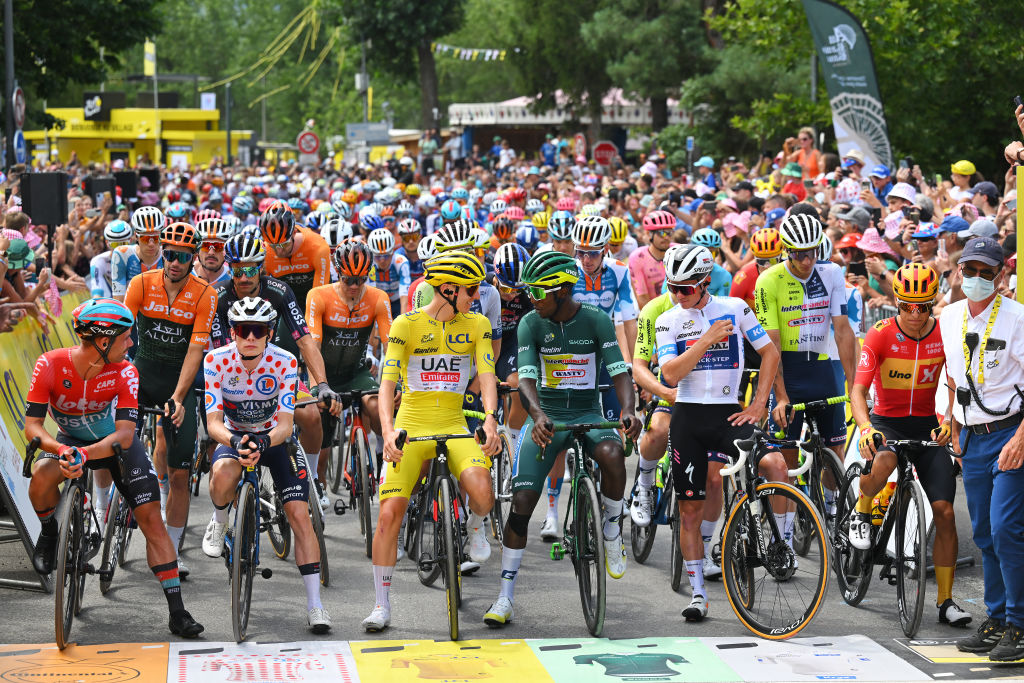Paris Olympics: Remco Evenepoel overcomes puncture and powers to second gold in Paris with convincing men's road race victory
France goes silver and bronze with Madouas and Laporte
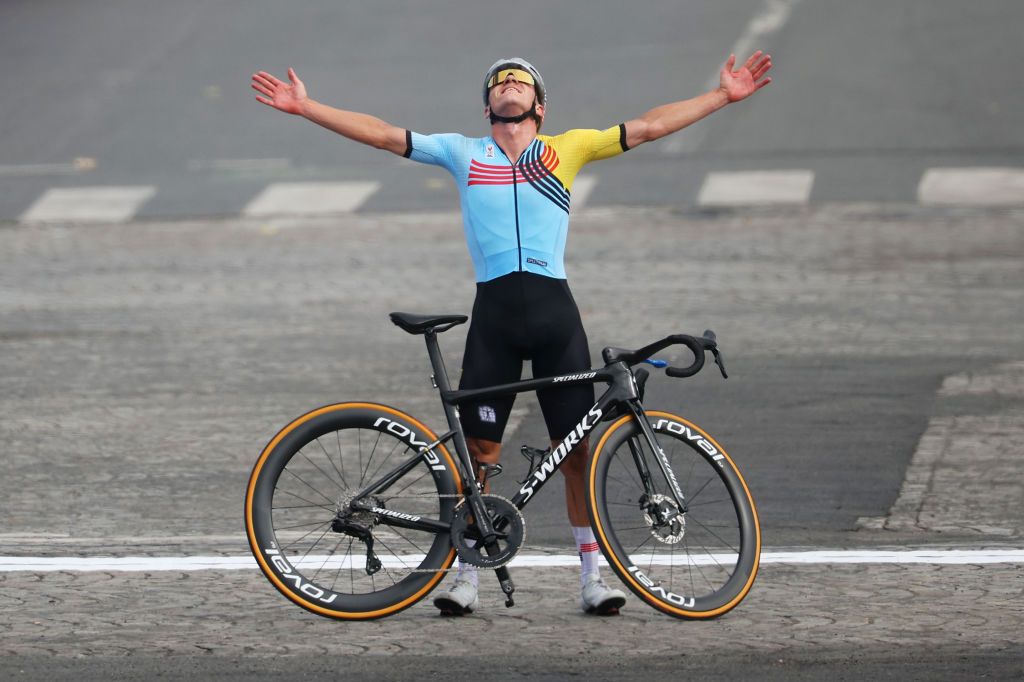
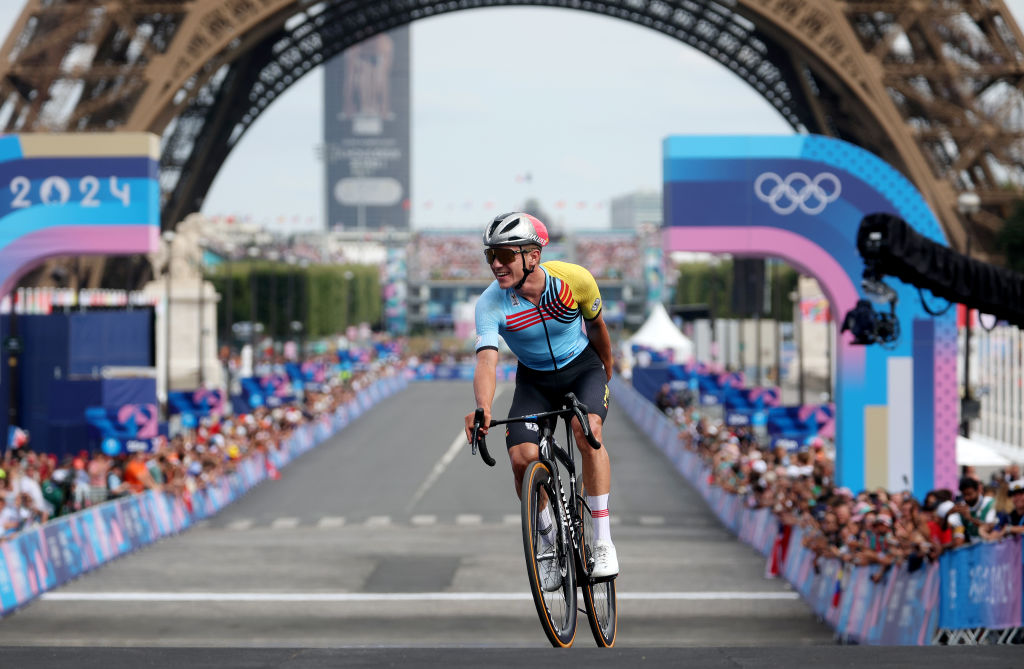
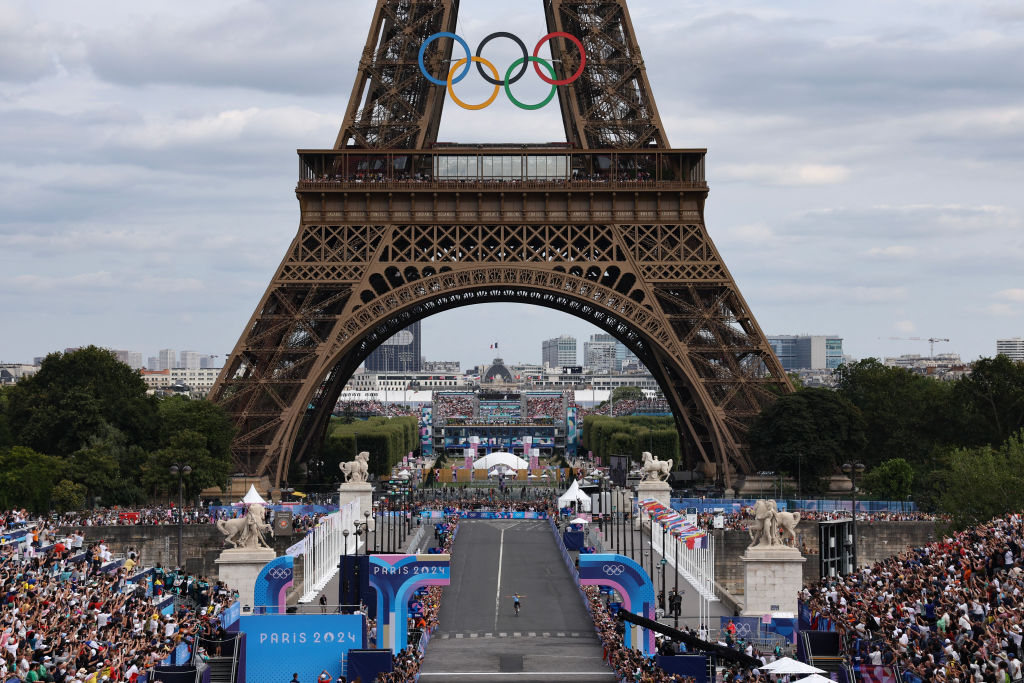
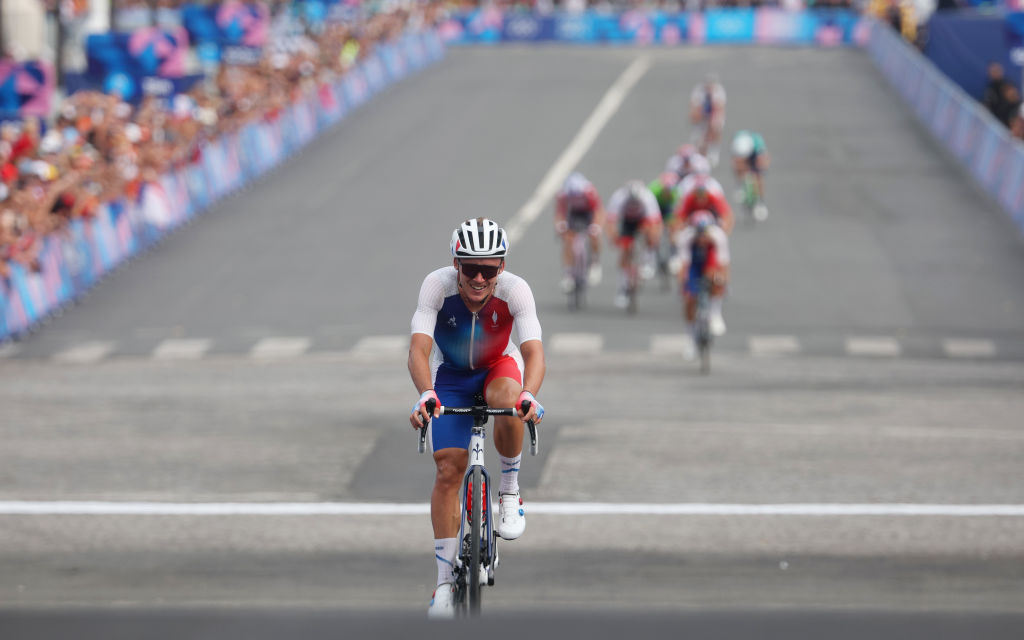
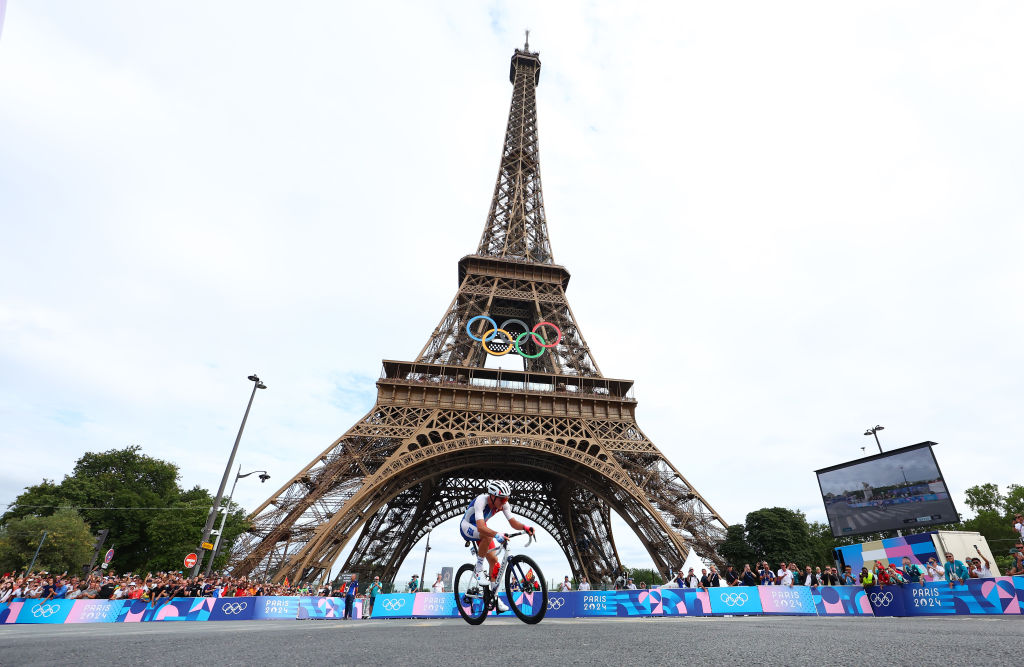
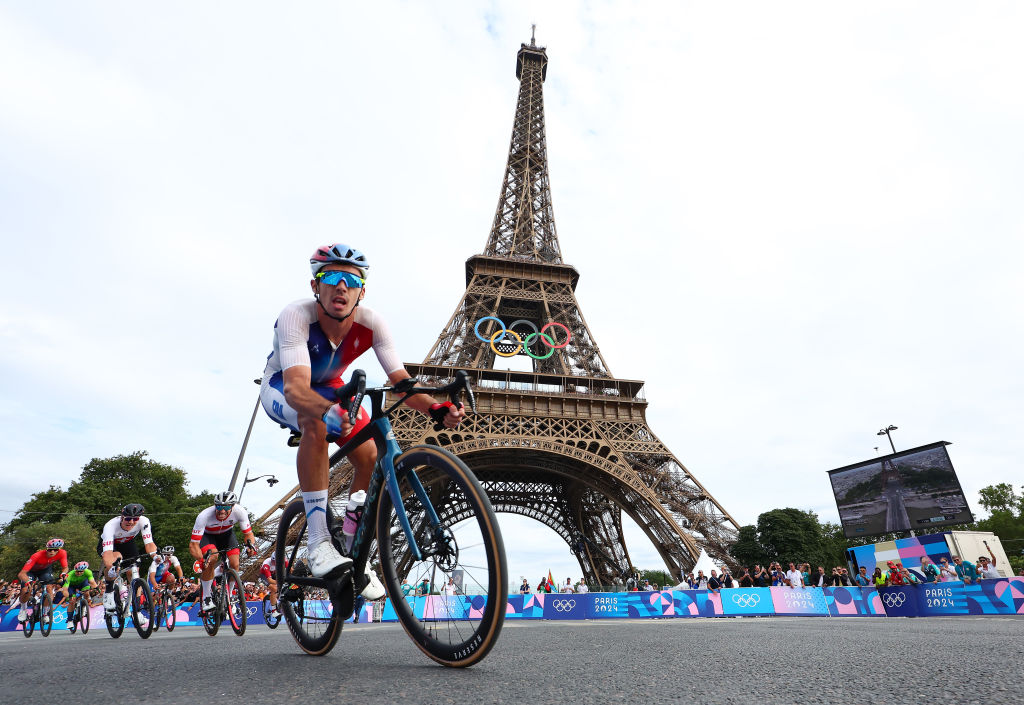
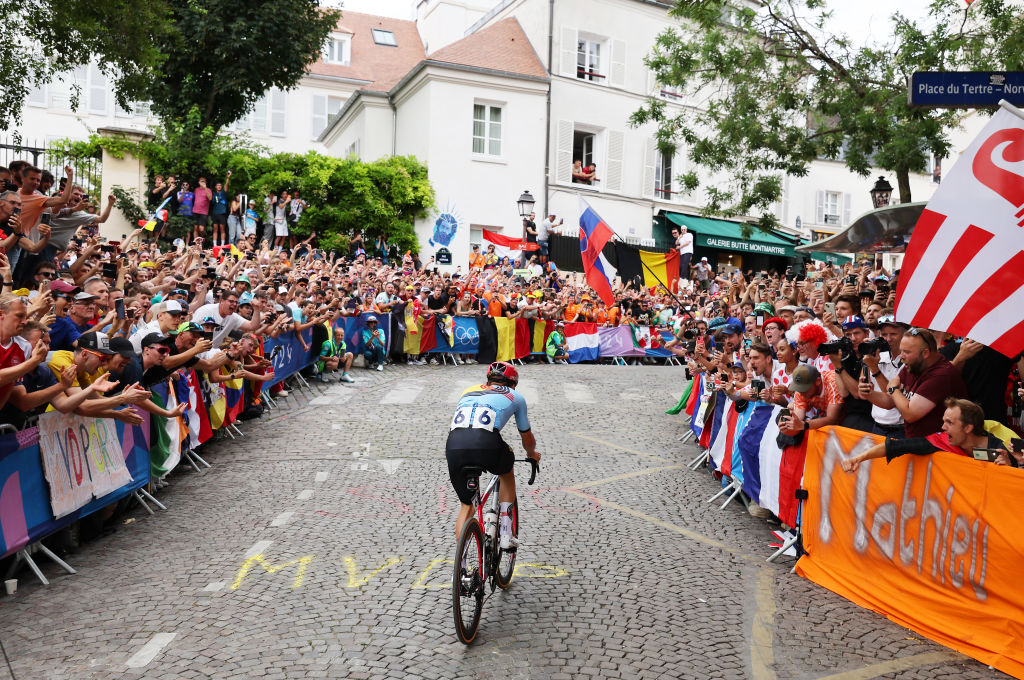
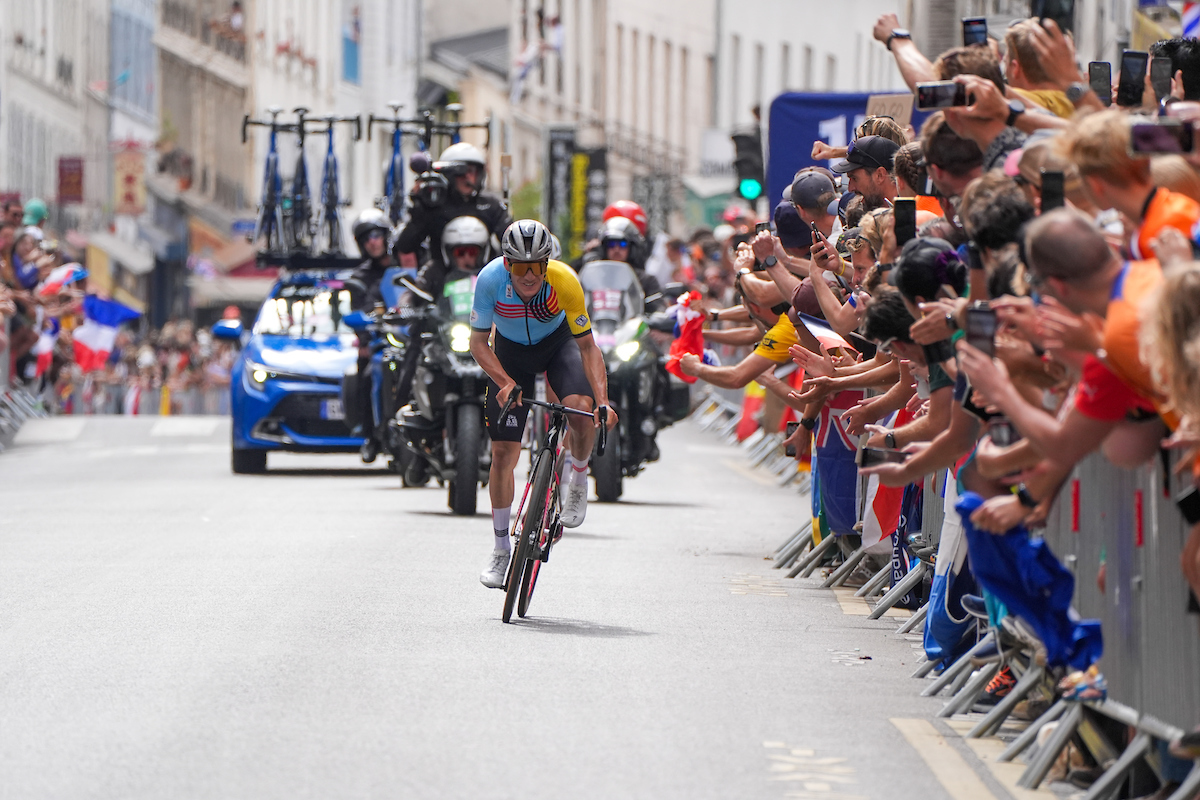
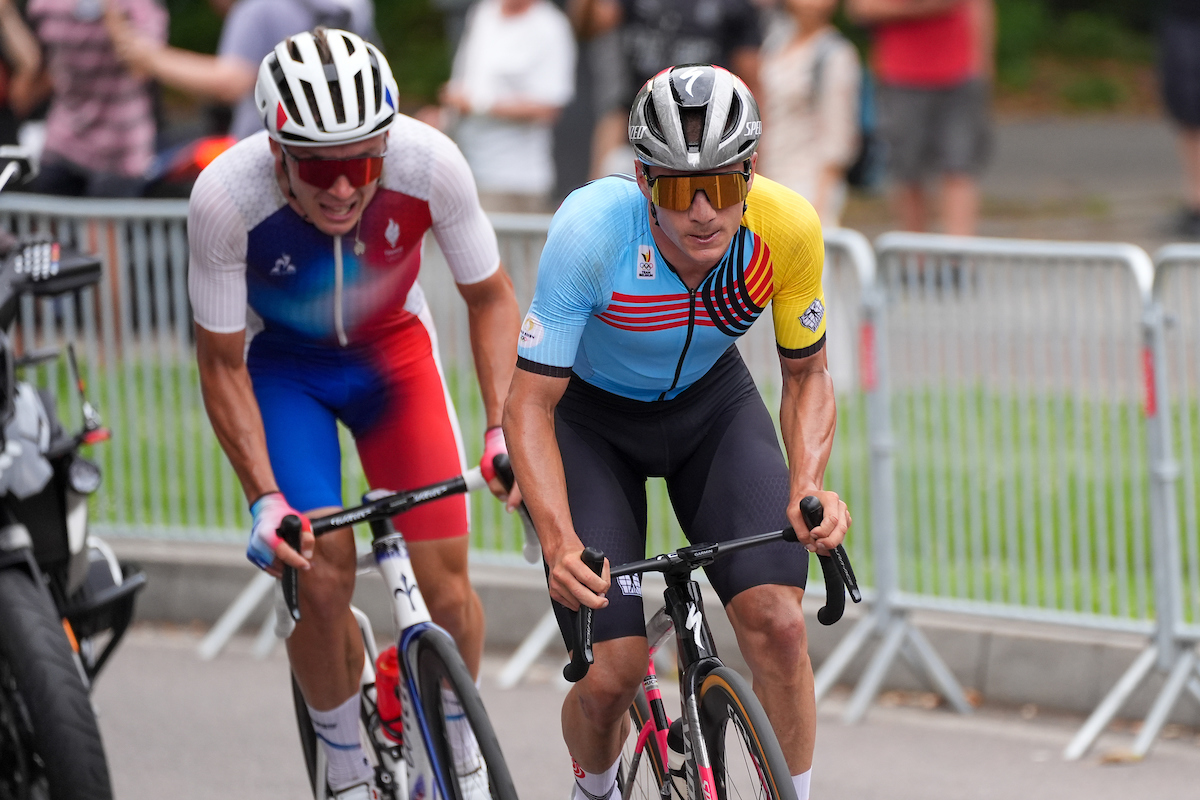
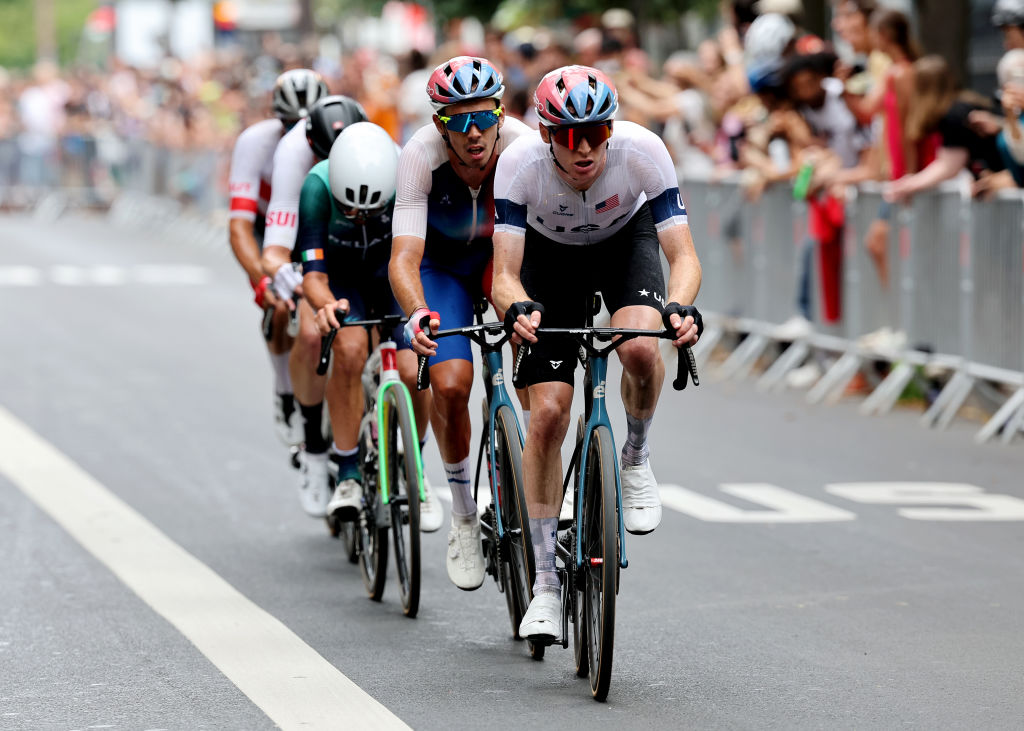
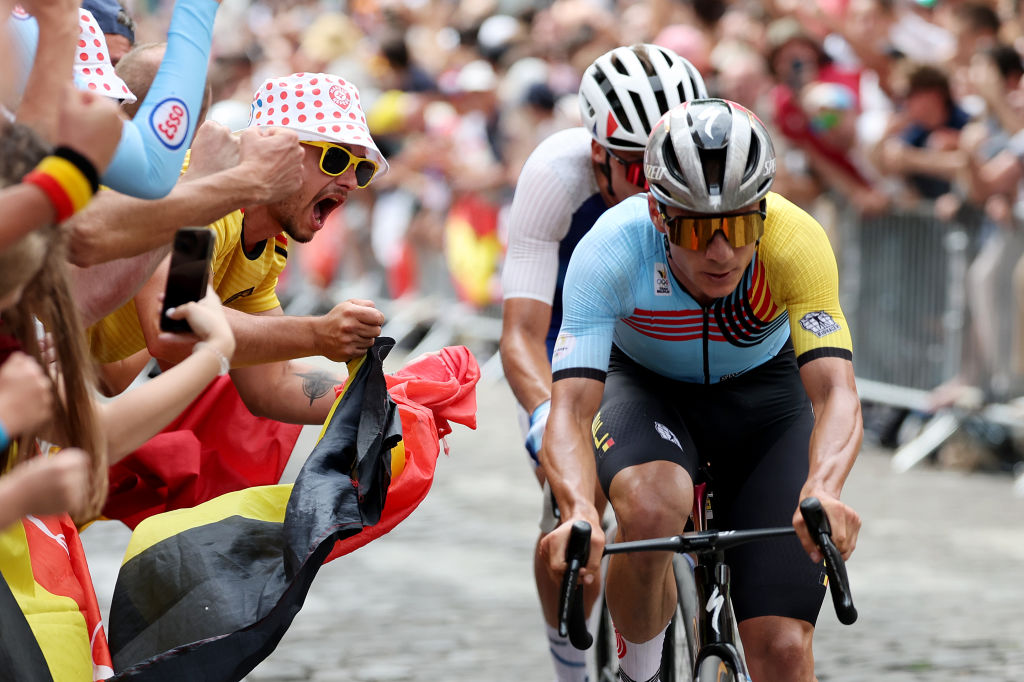
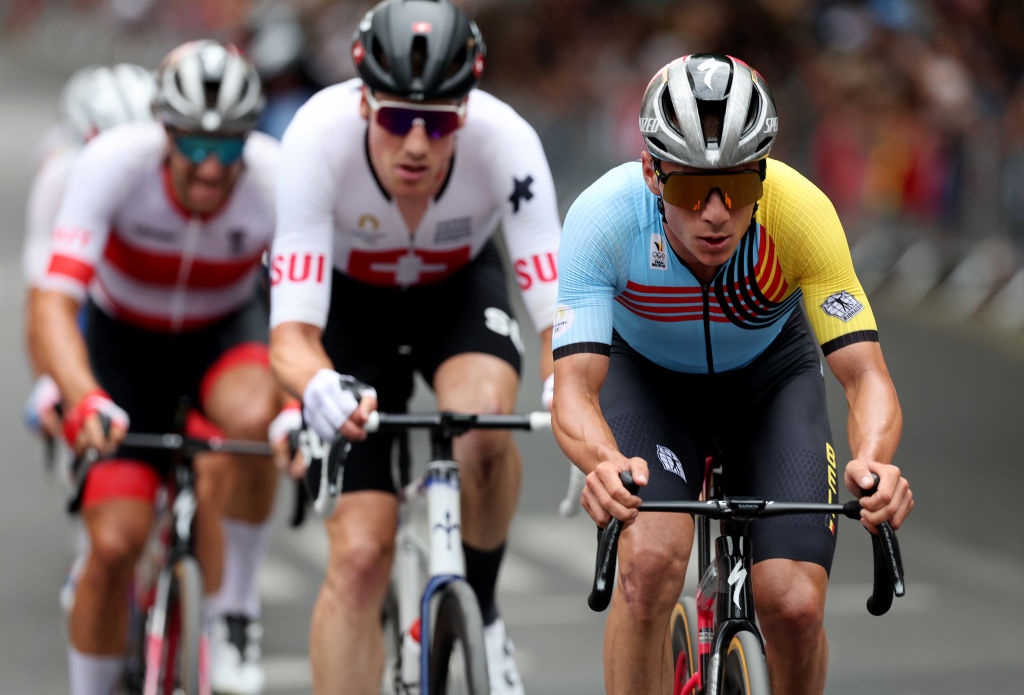
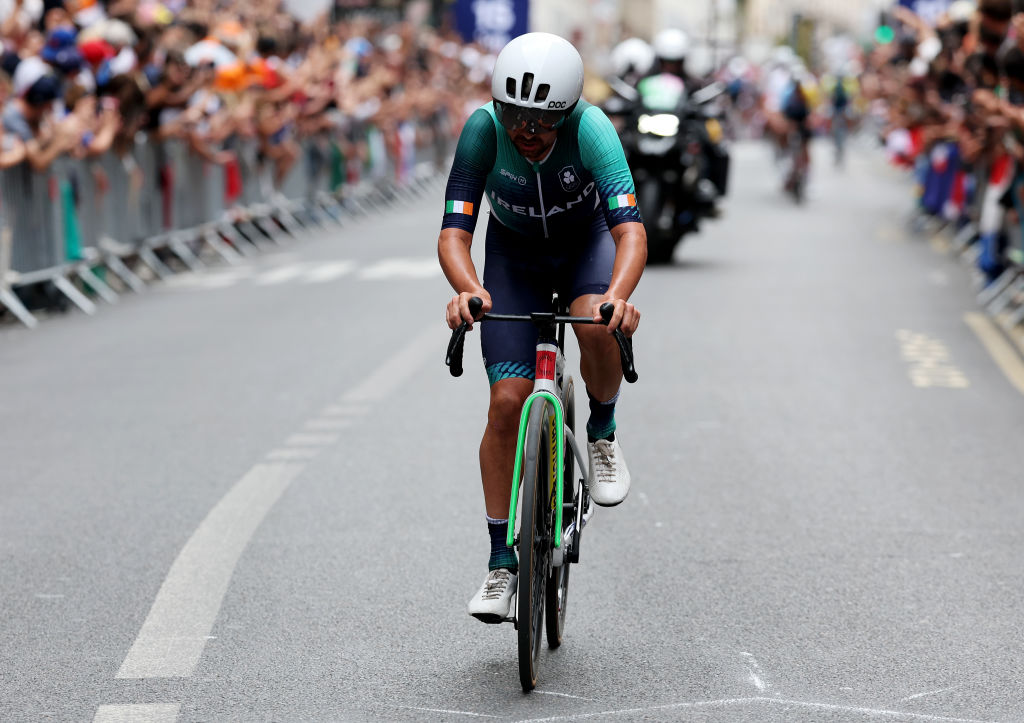
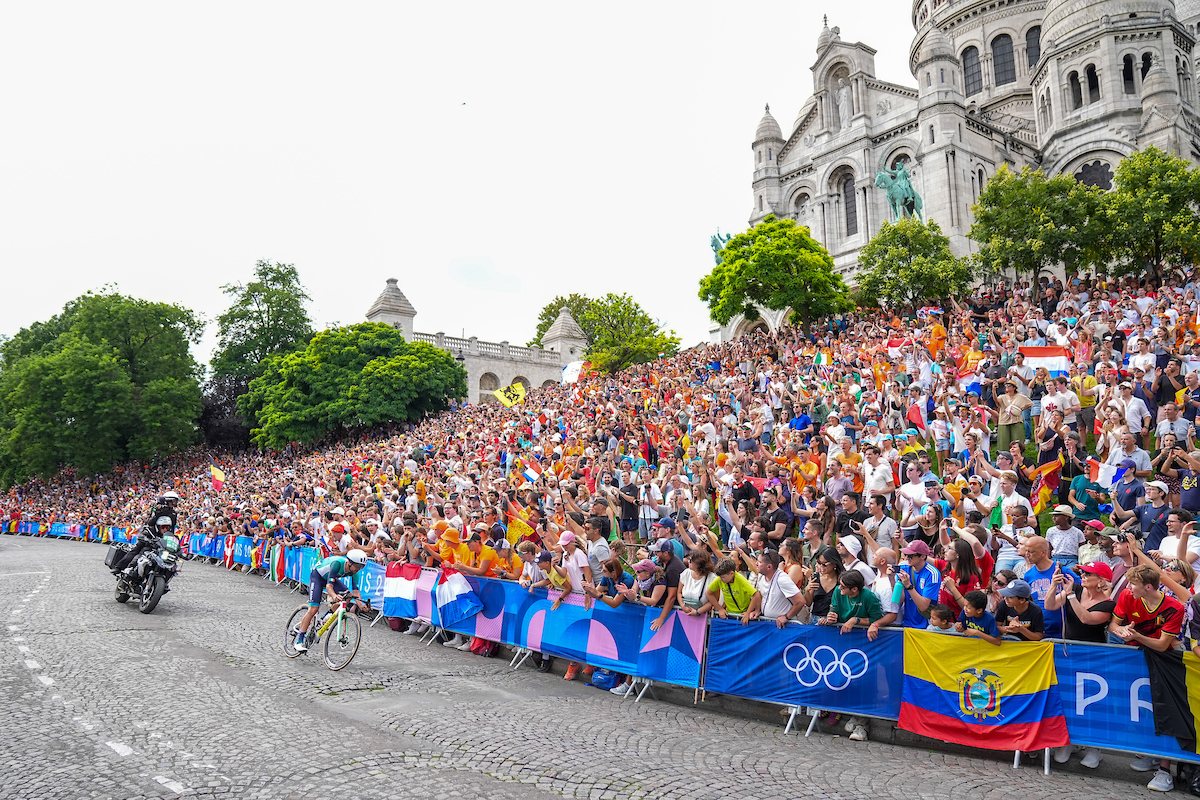
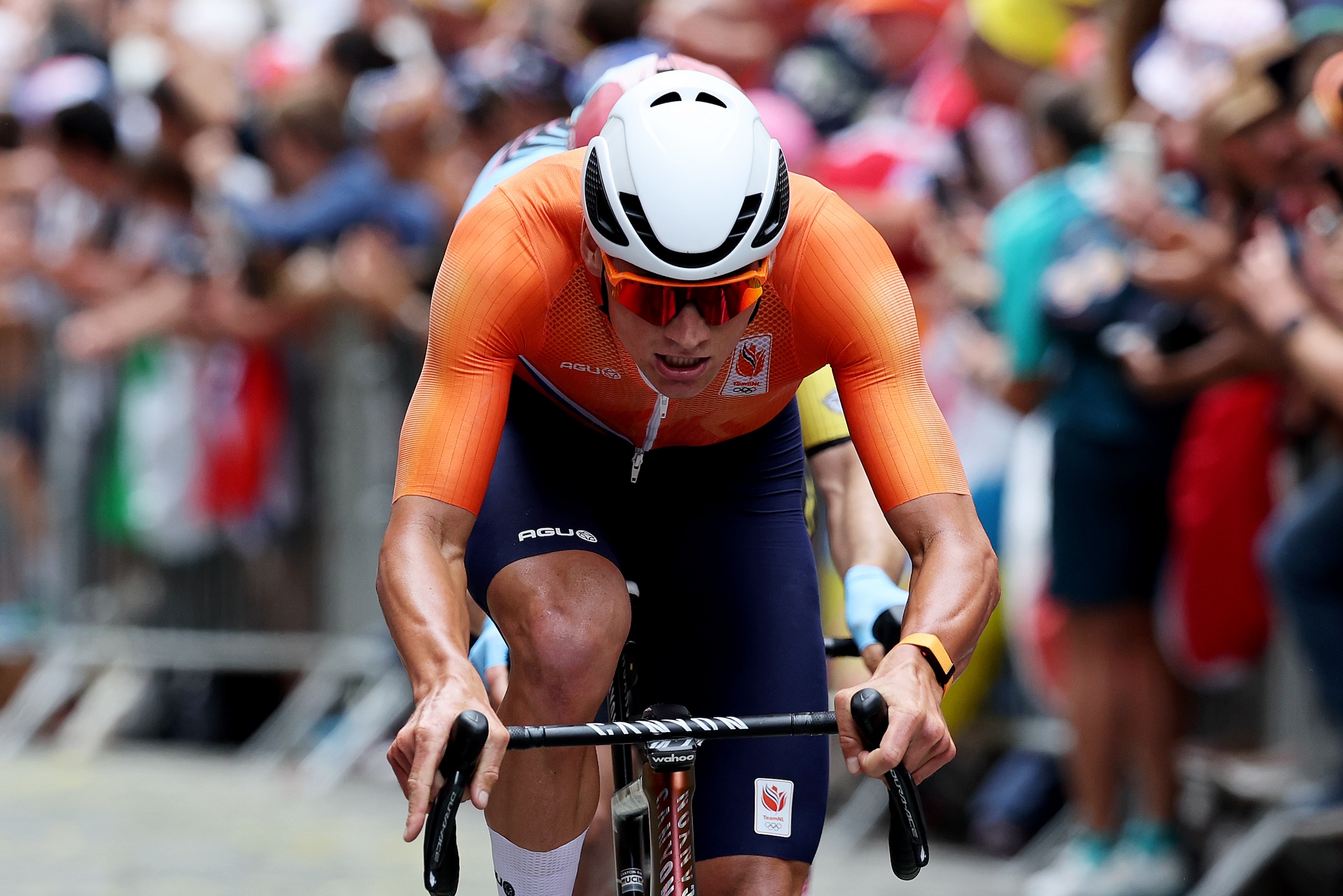
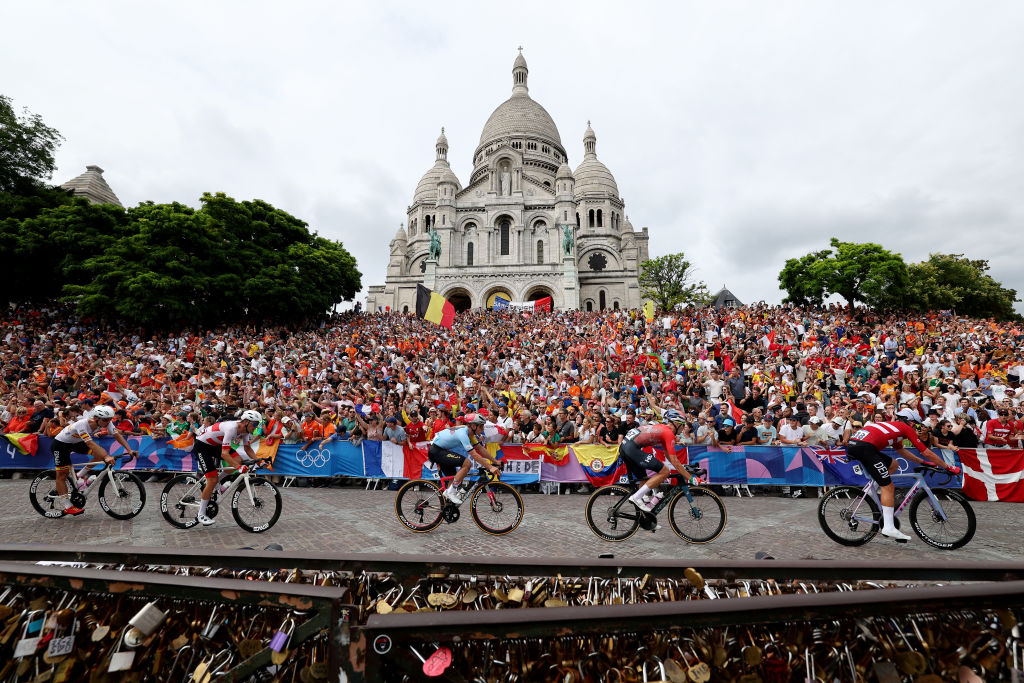
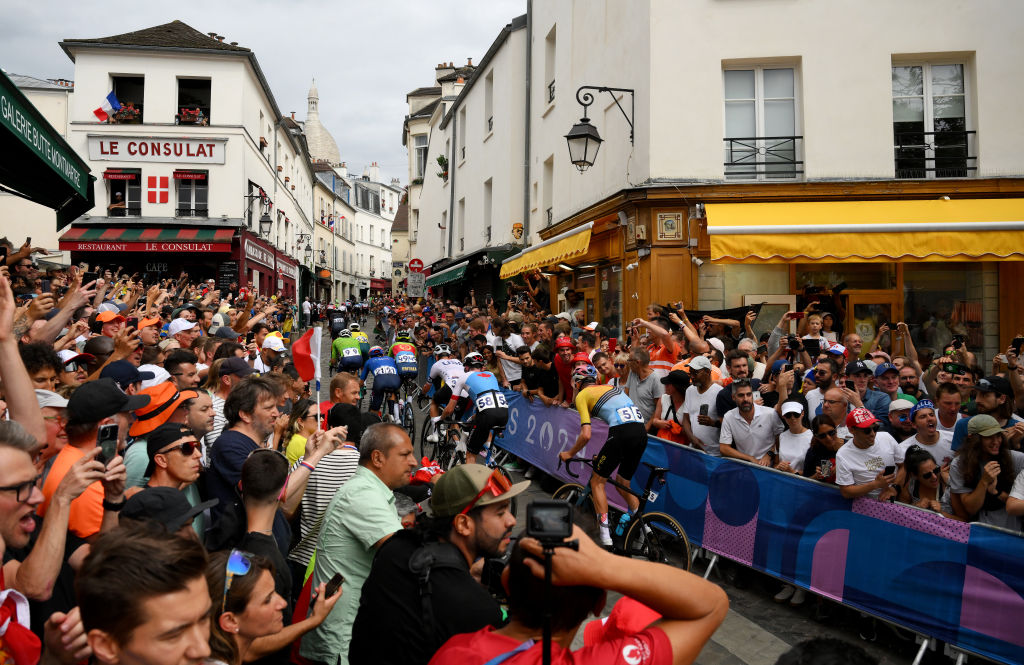
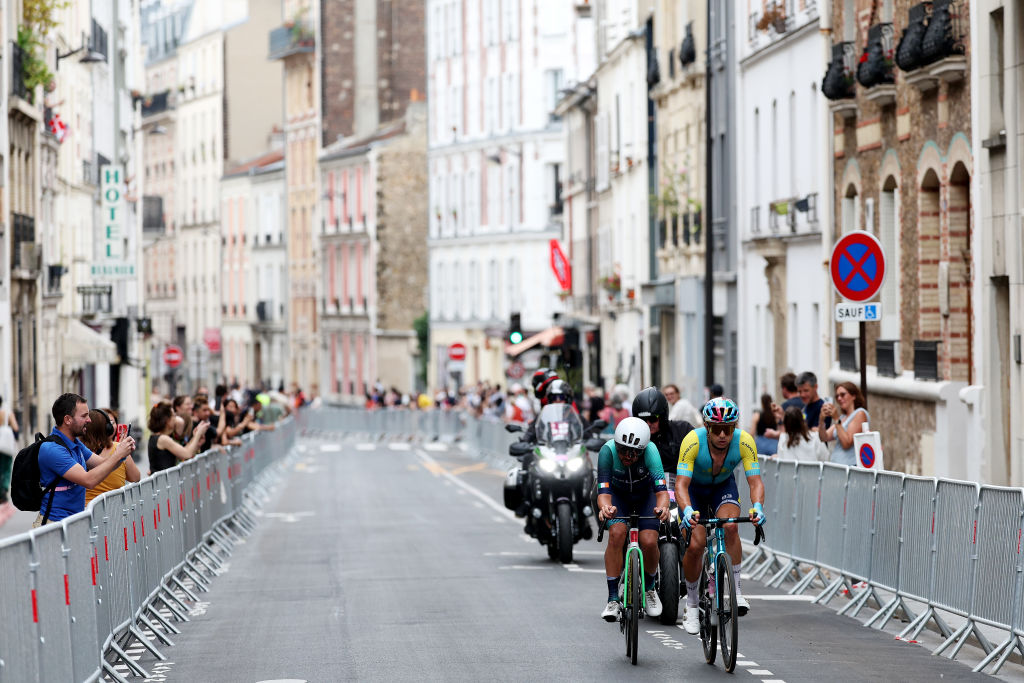
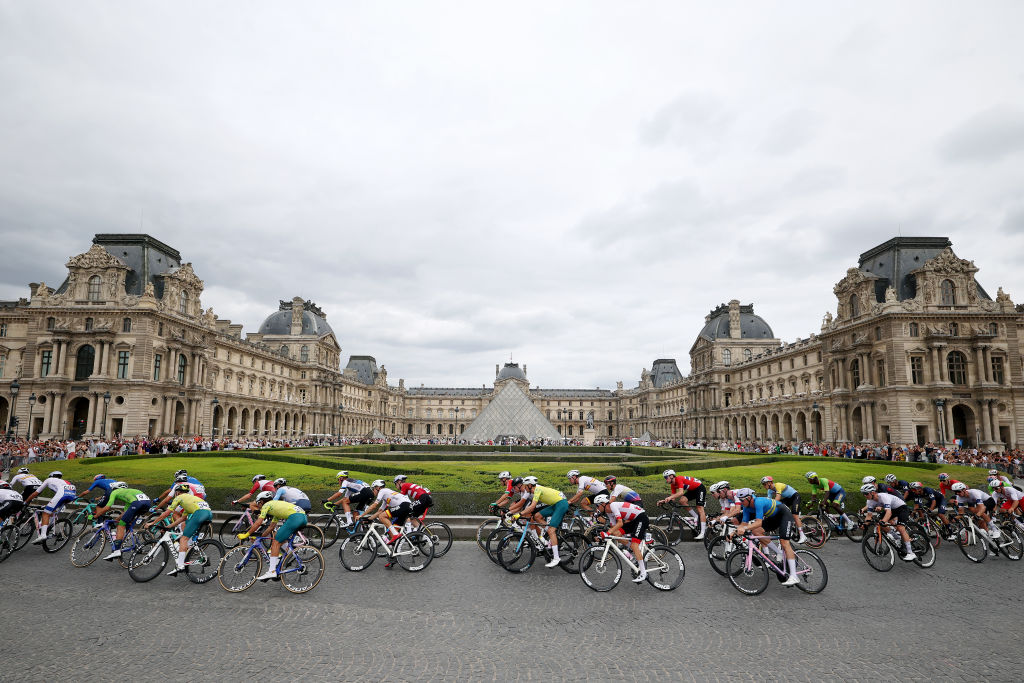
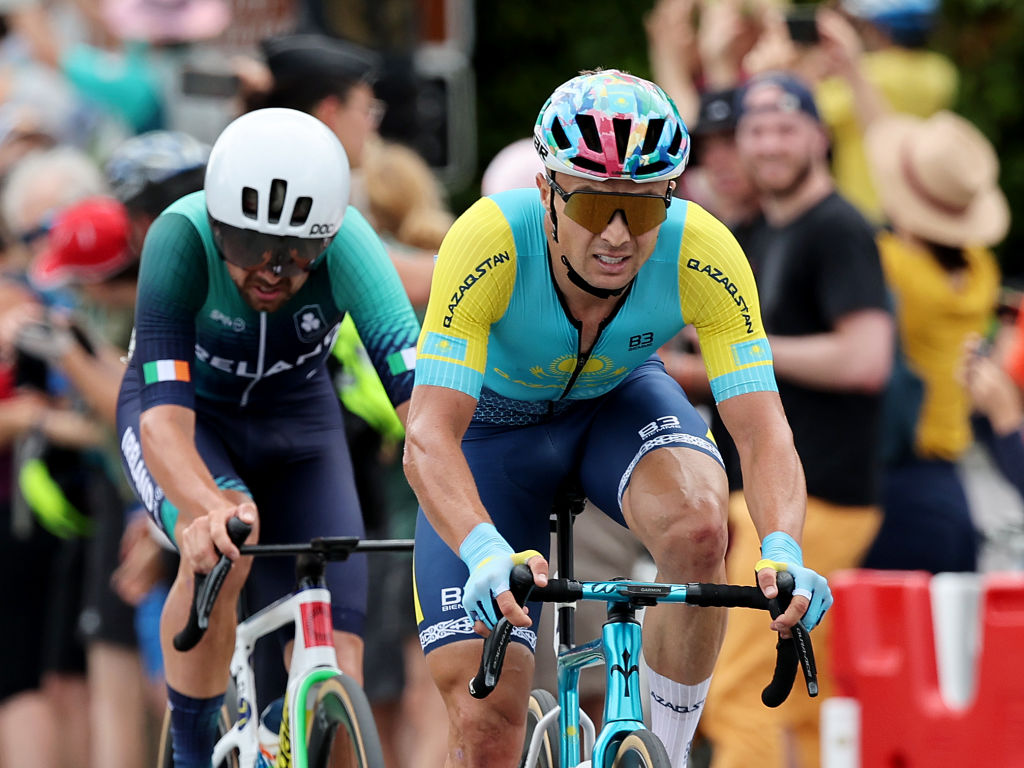
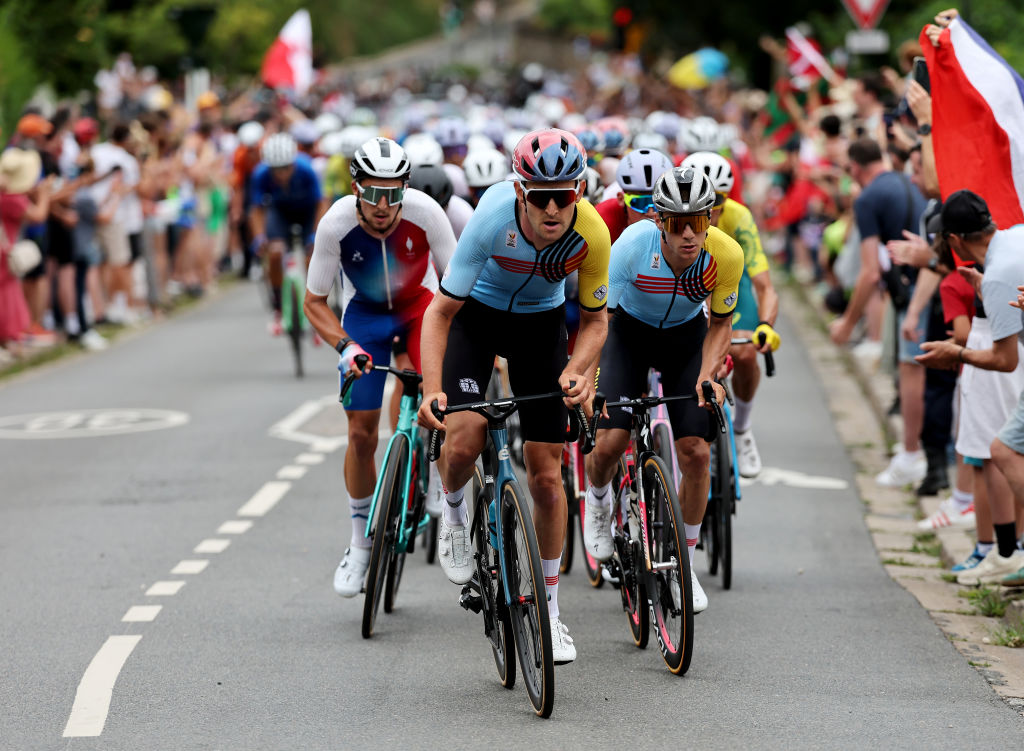
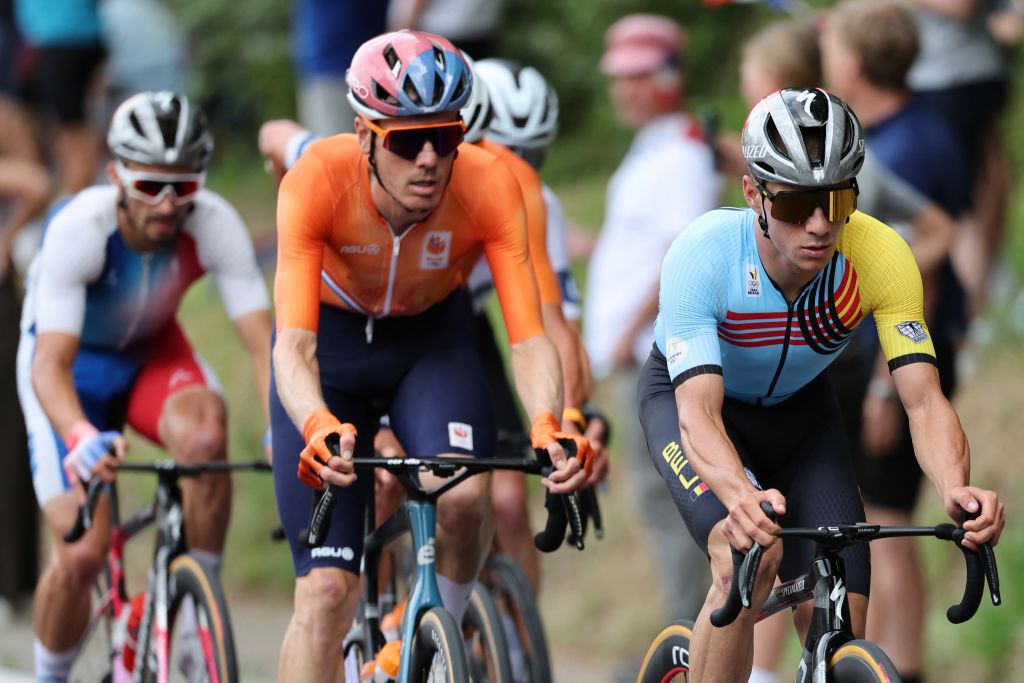
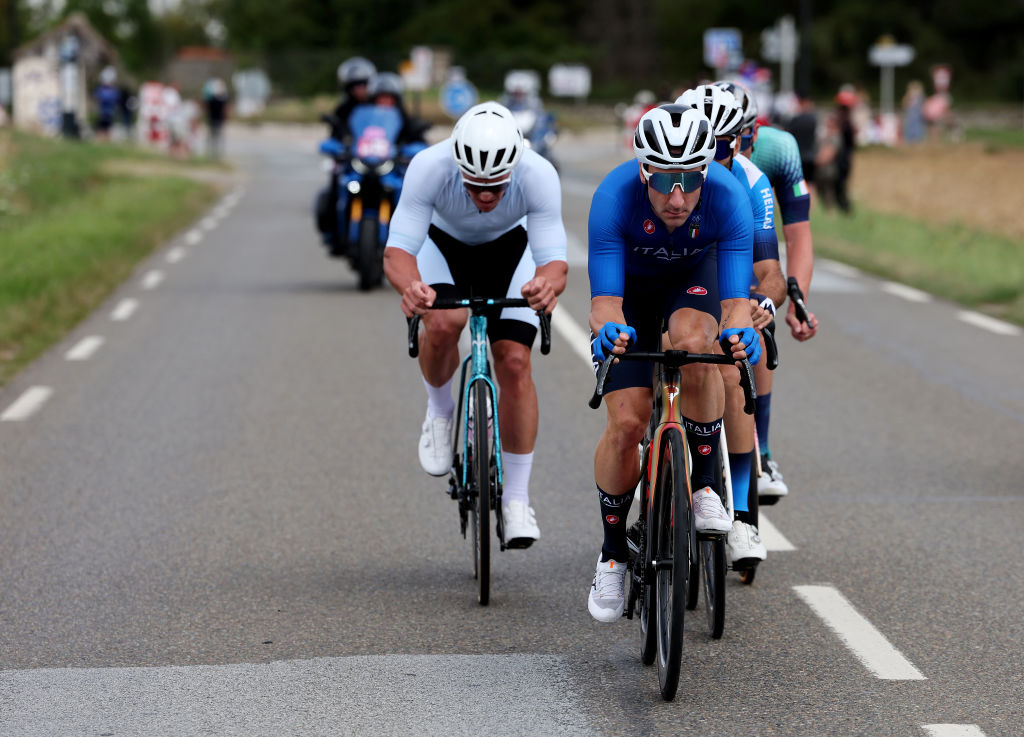
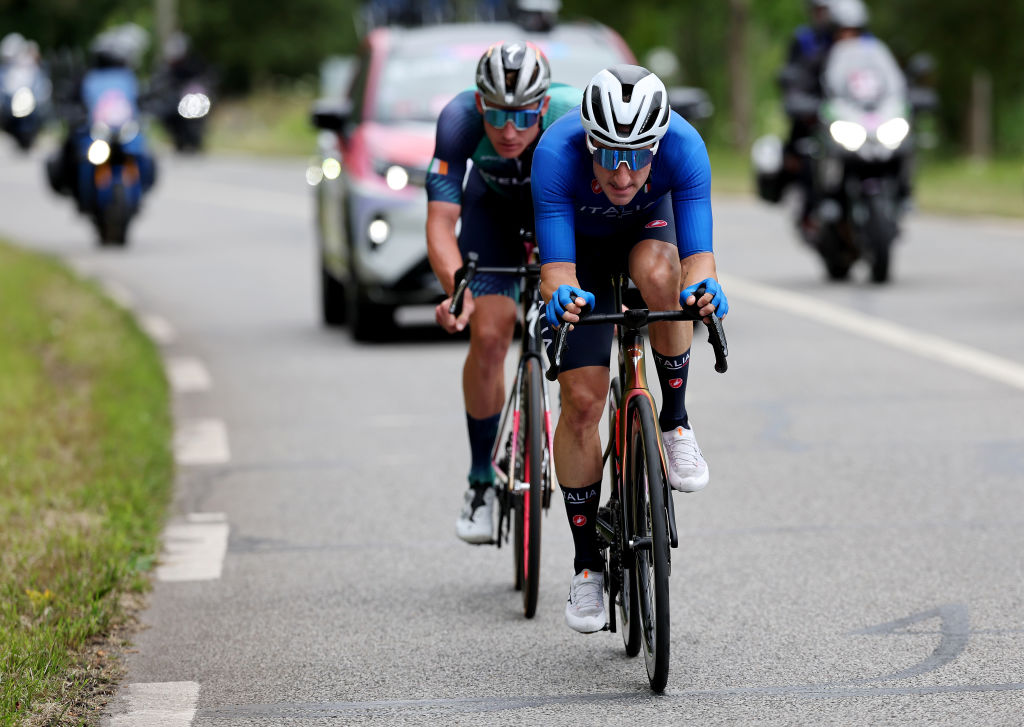
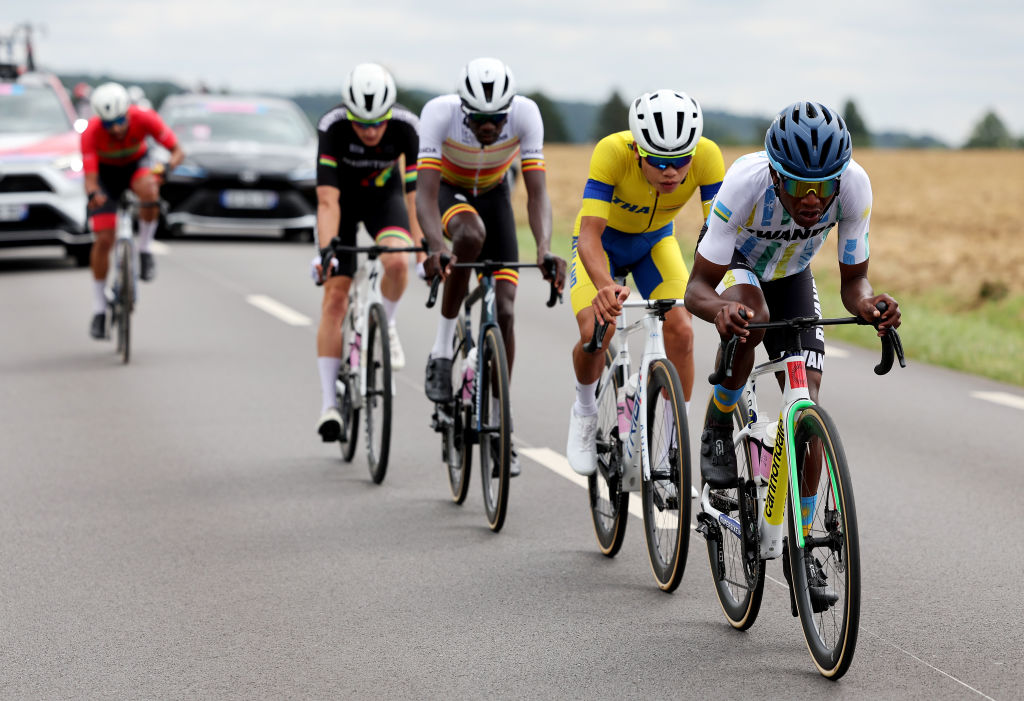
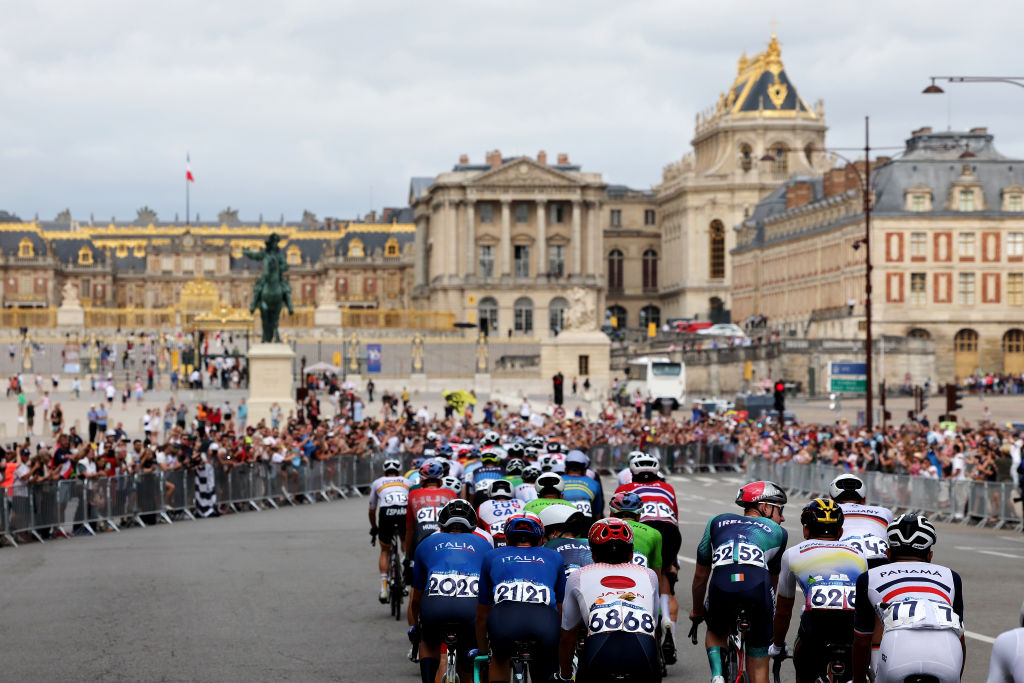
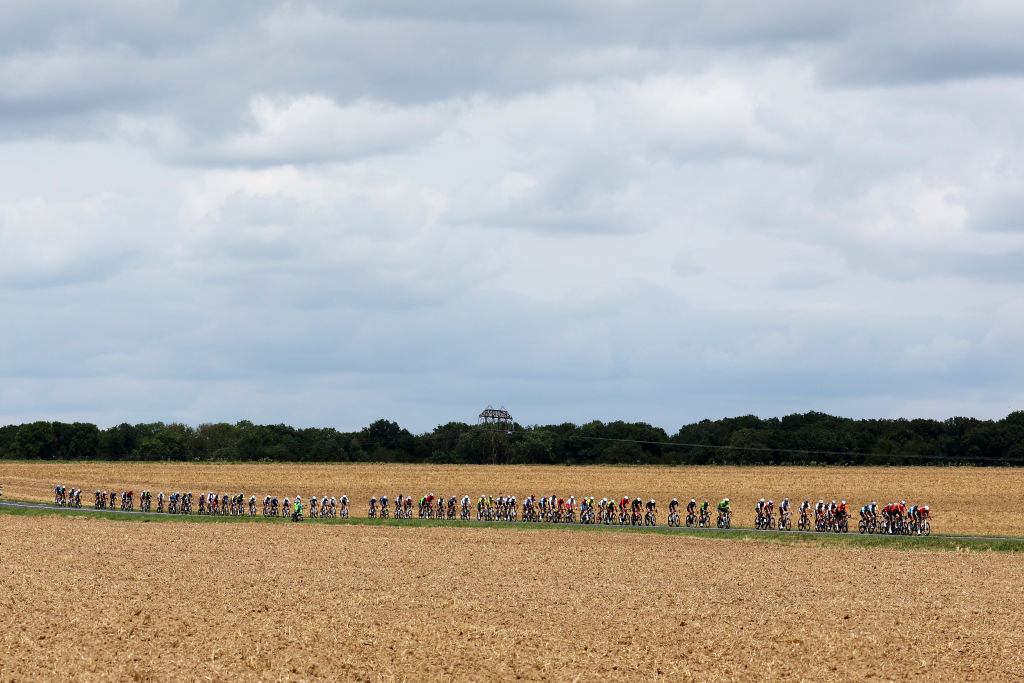
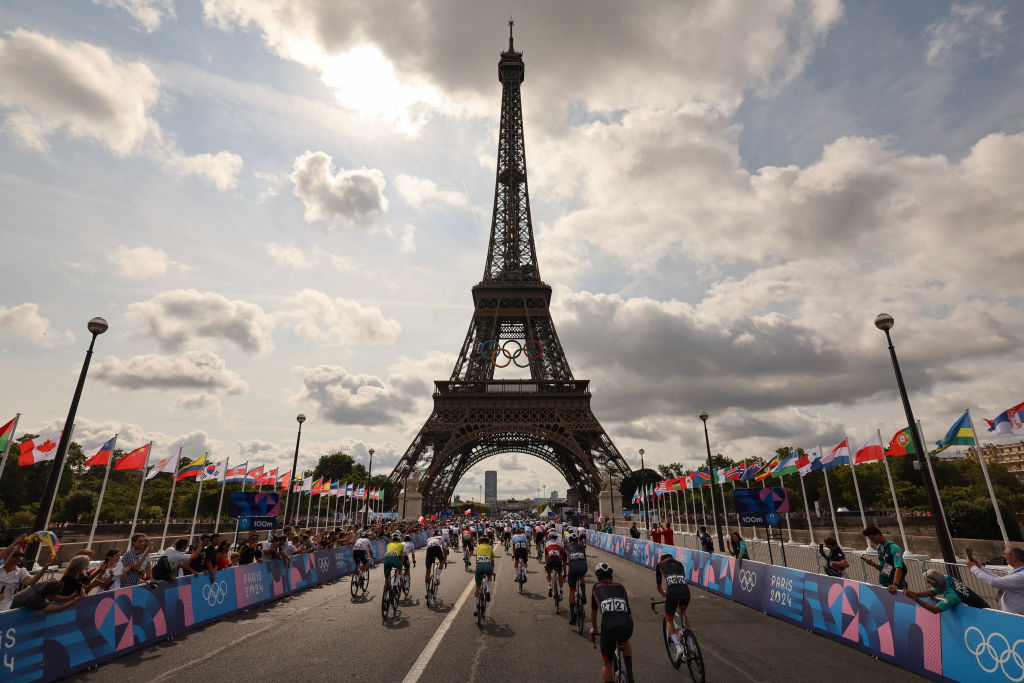
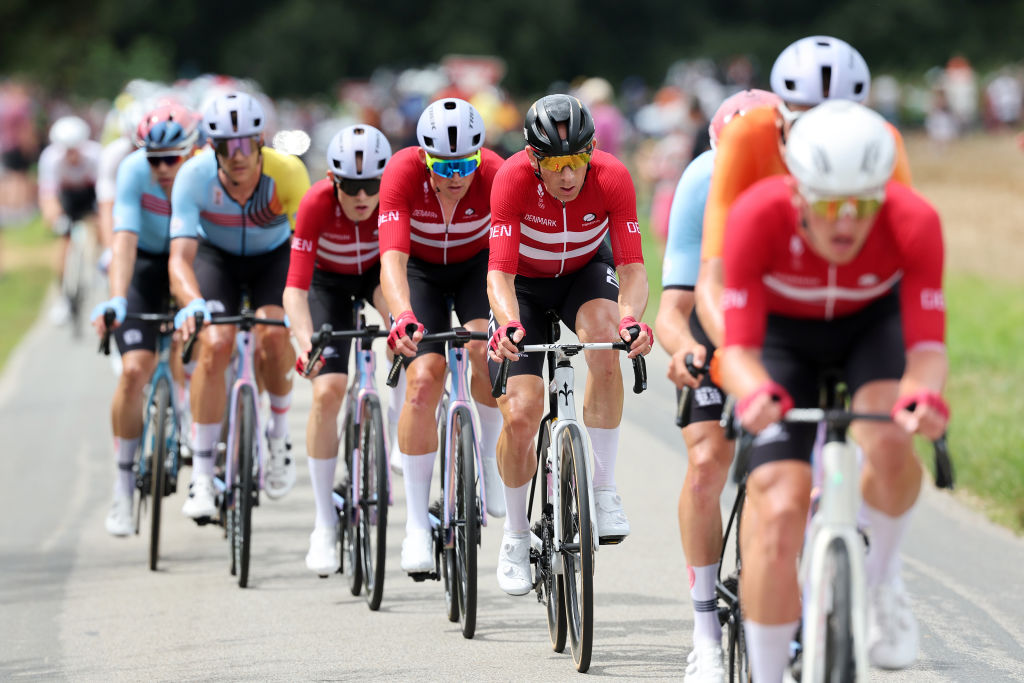
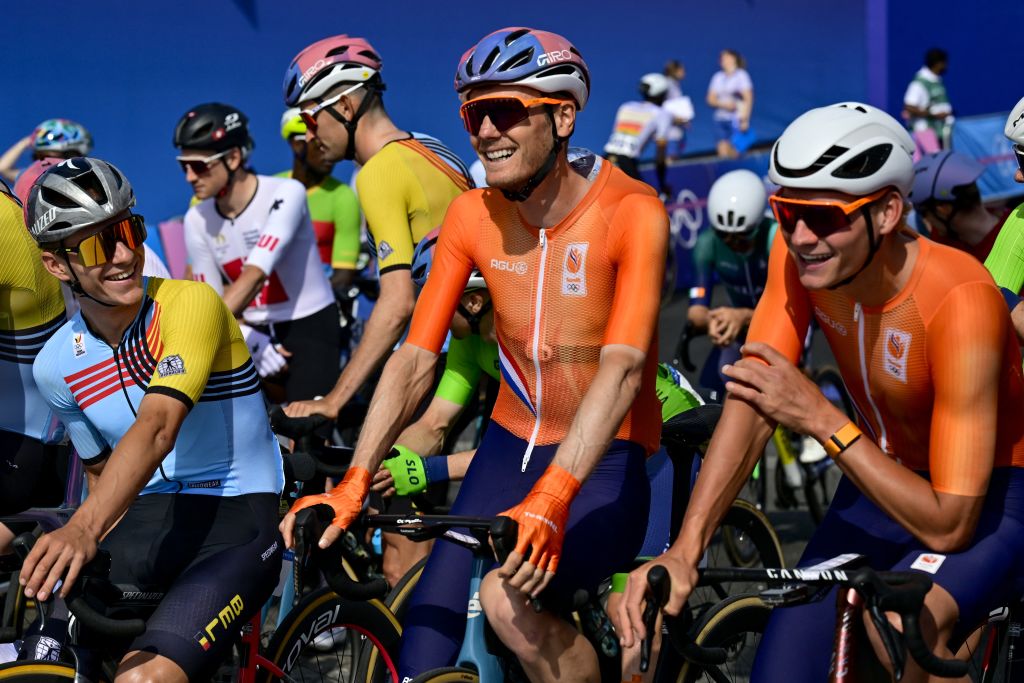
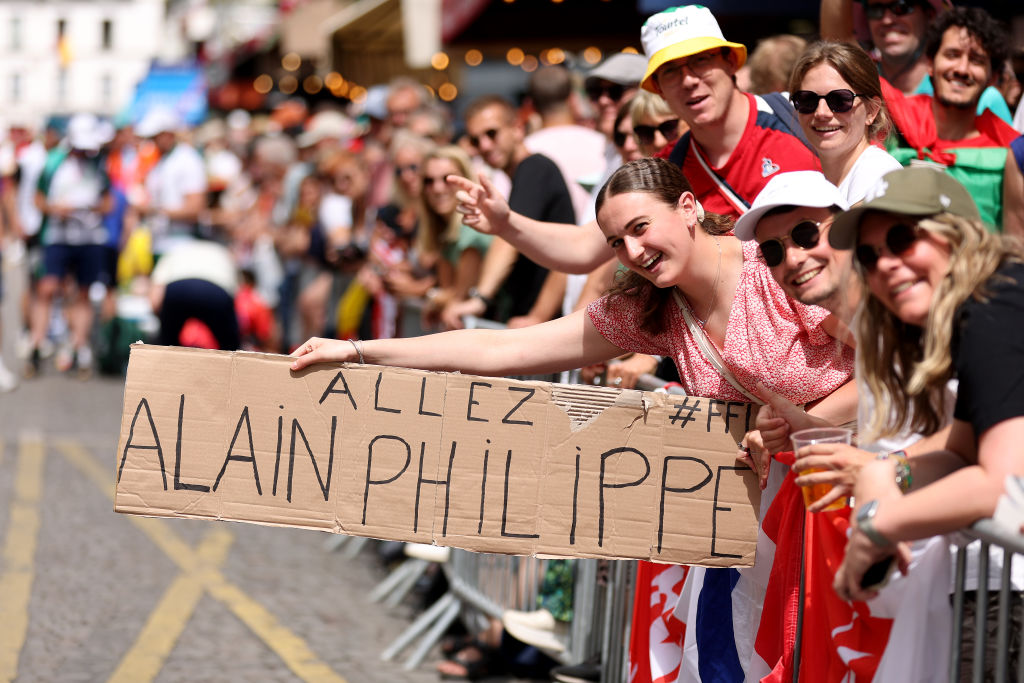
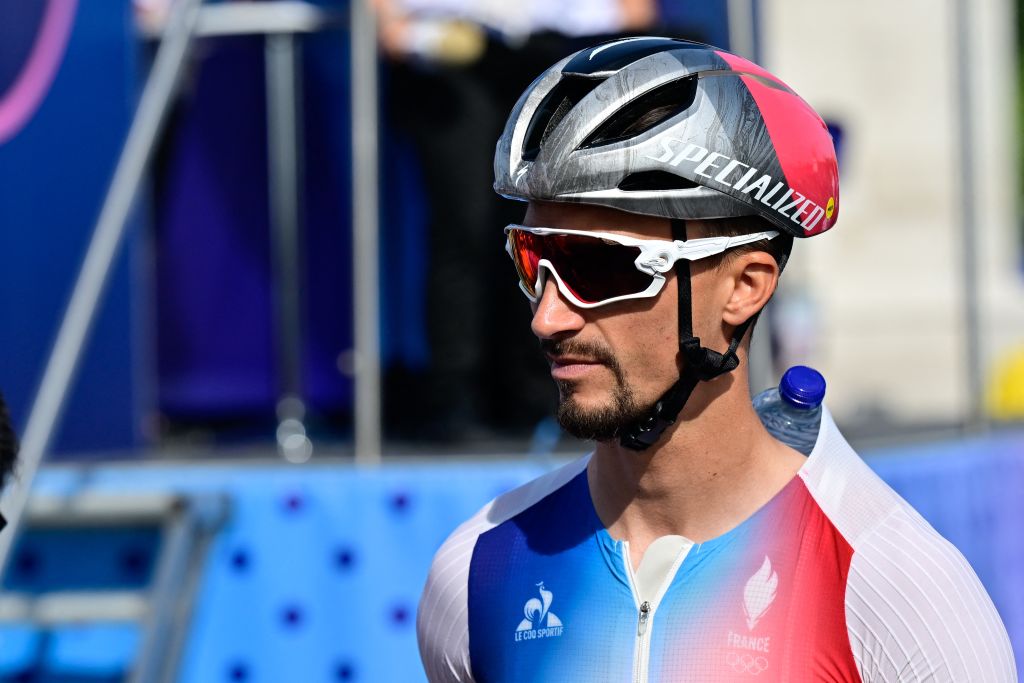
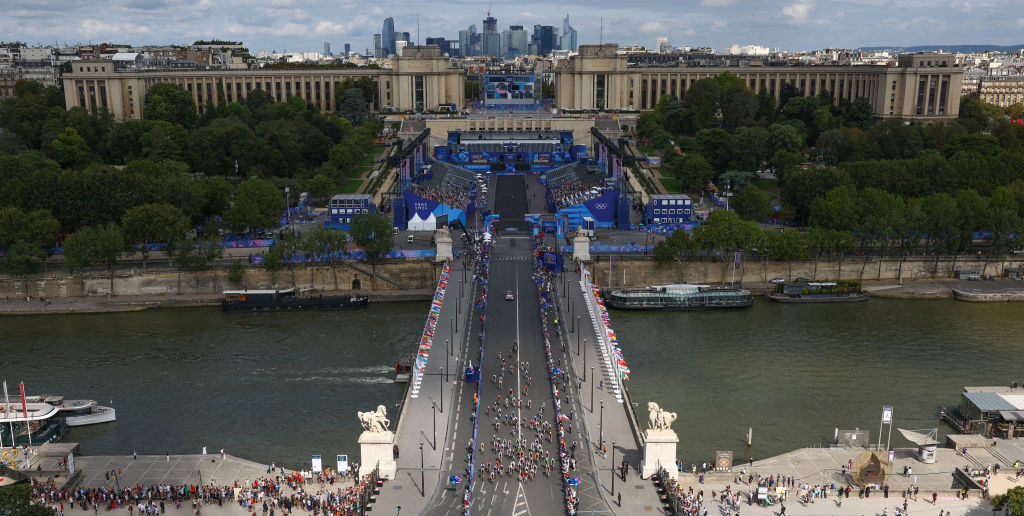
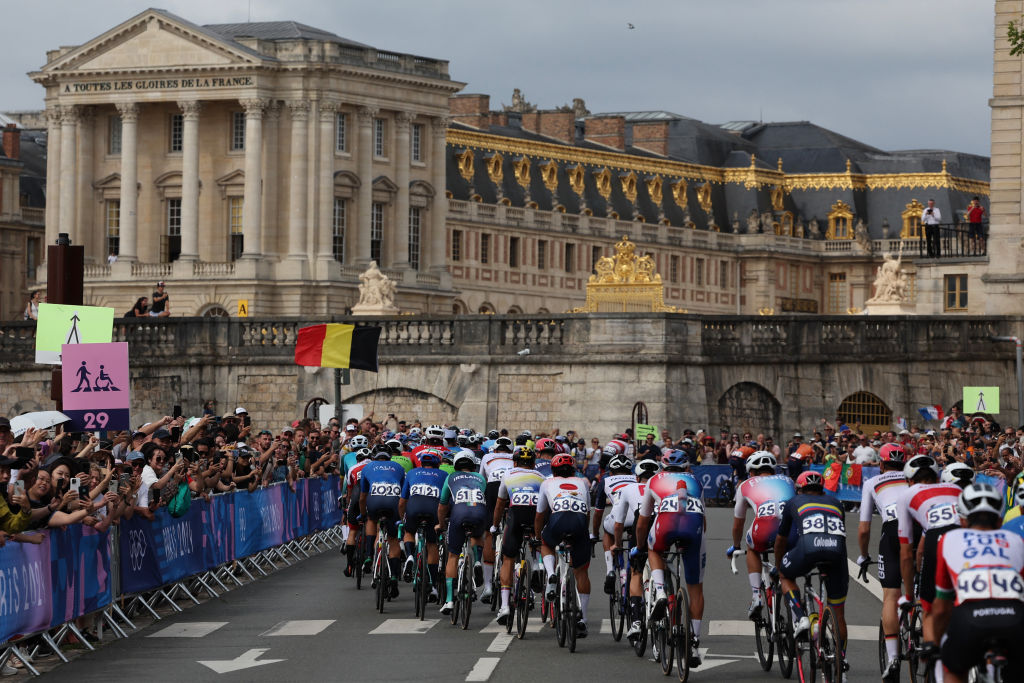
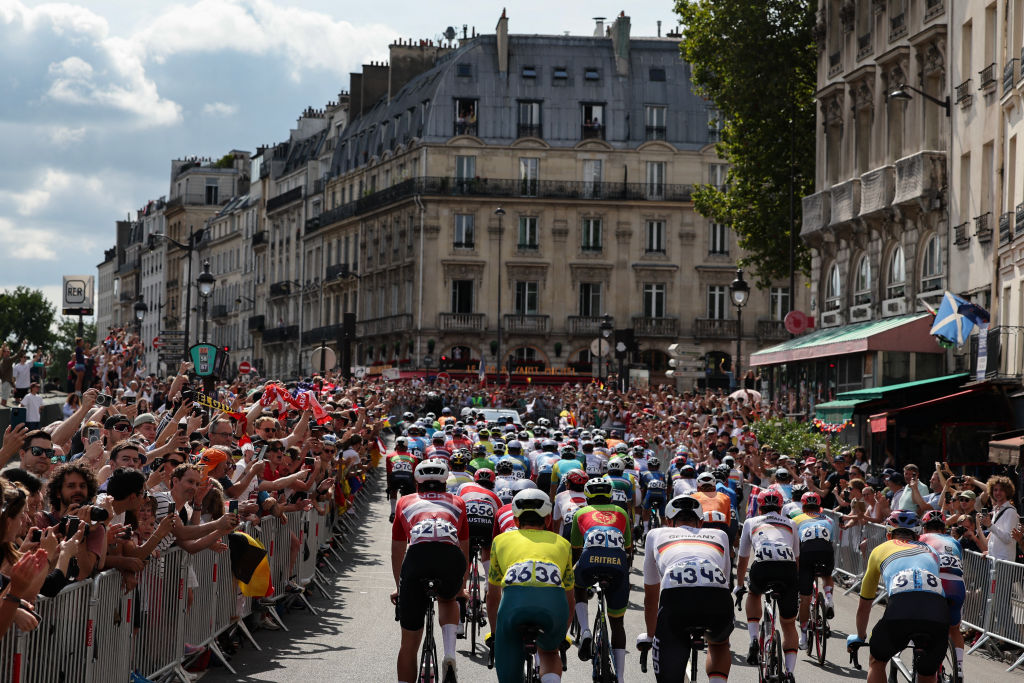
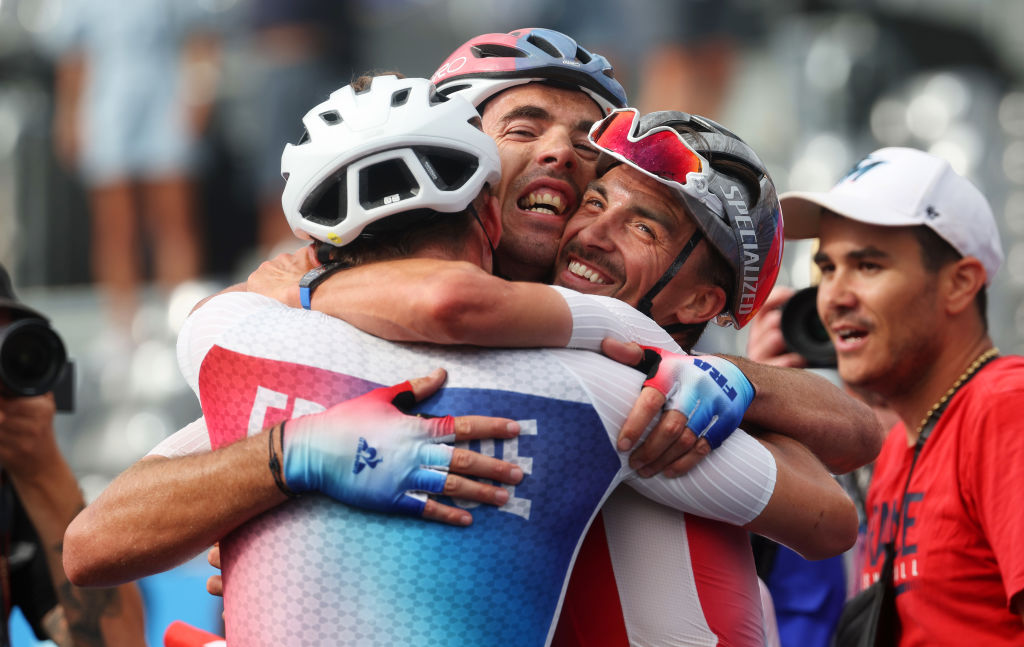
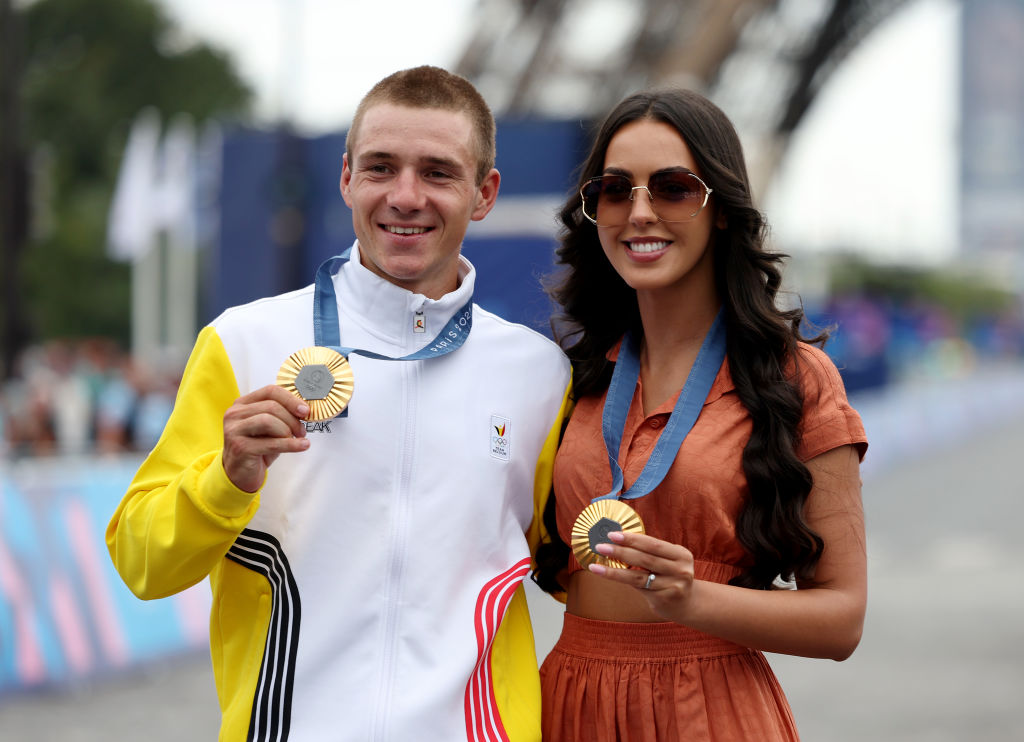
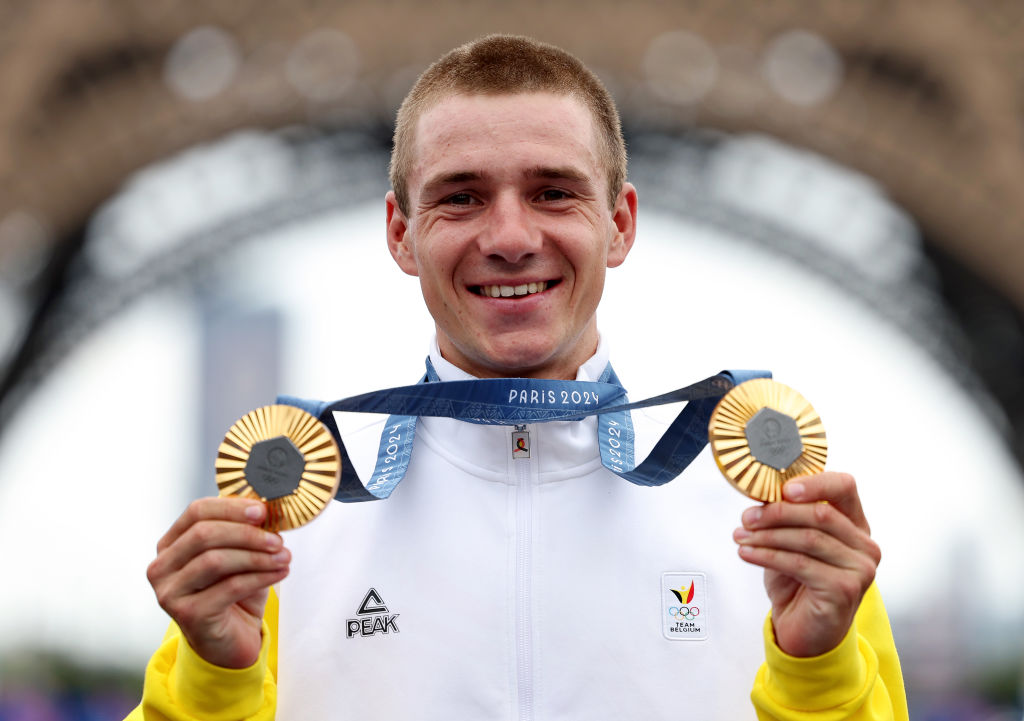
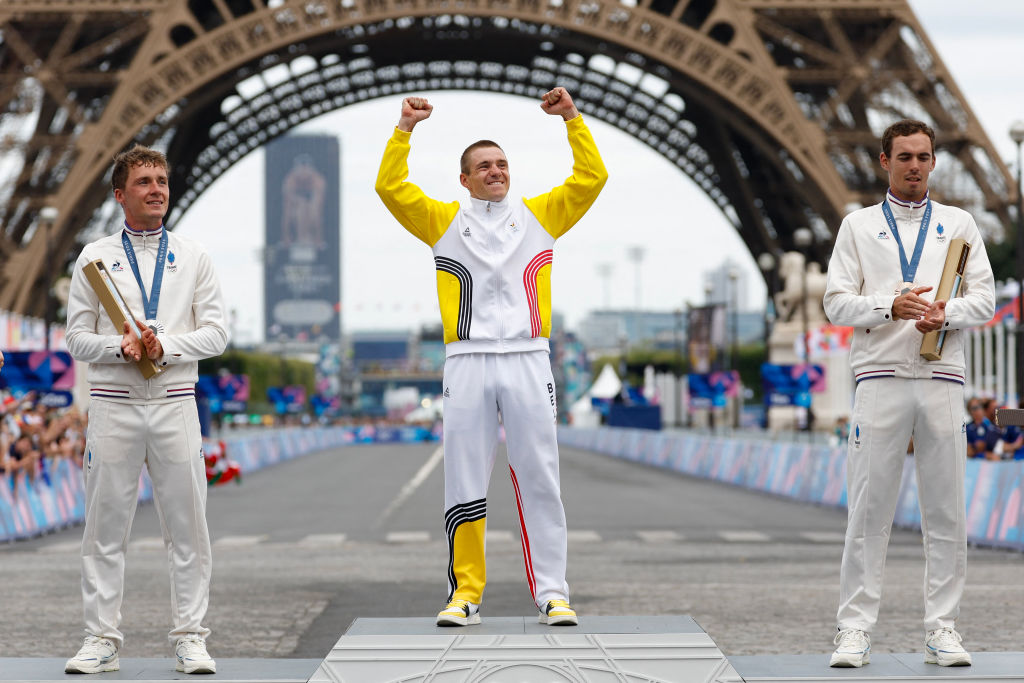
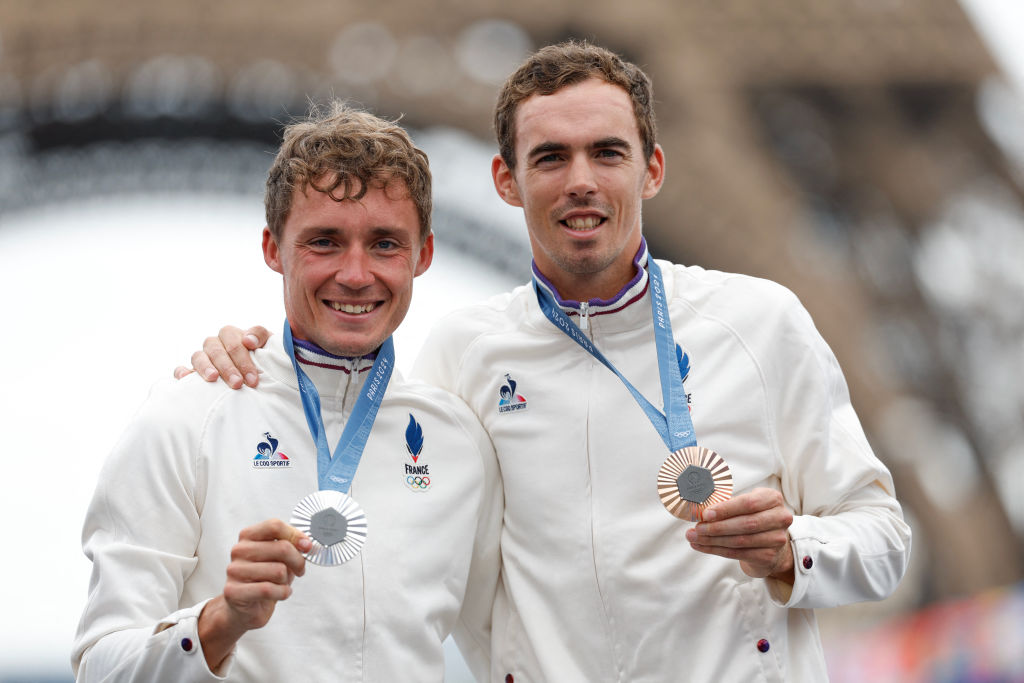
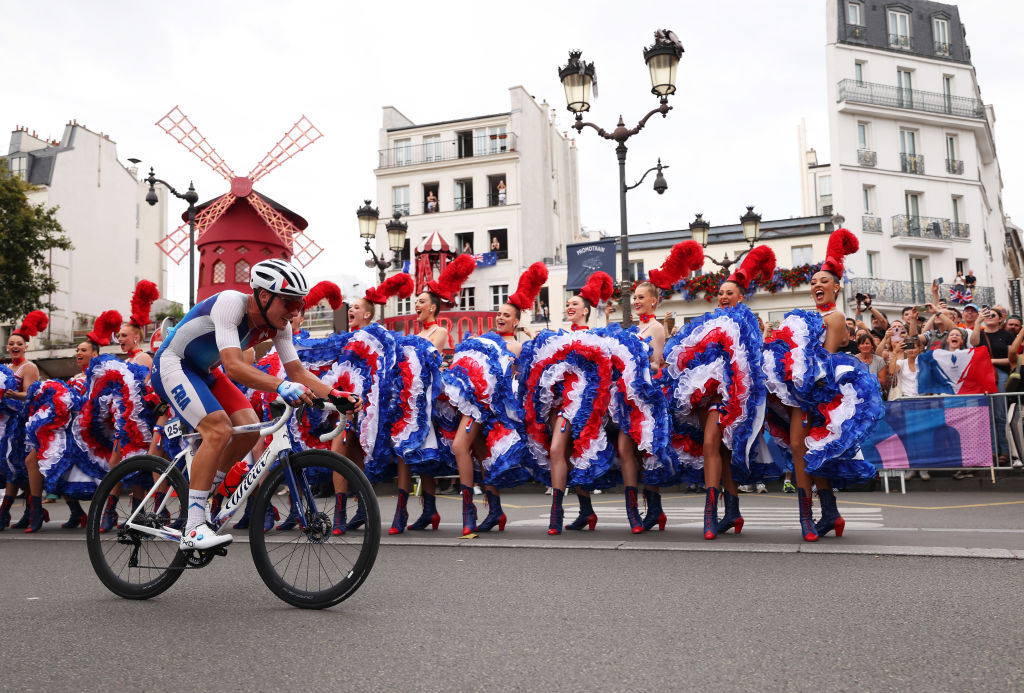
A heart-stopping last-minute bike change could not stop Remco Evenepoel from roaring his way into the Olympic Games history books on Saturday, as the Belgian blasted his way to road race goal and simultaneously became the first ever male rider to secure both road and time trial titles in the same Olympics.
Less than four kilometres from the line, Evenepoel was heading solo for victory when he abruptly halted and shouted at his mechanic, quickly managed to get a bike change ,and despite the massive last-minute drama, forged onwards to secure a second gold medal in the Paris games.
The silver went to France’s Valentin Madouas, dropped by Evenepoel 15 kilometres from the finish on the Belleville climb, with Madouas' compatriot Christophe Laporte taking the bronze.
The longest-ever Olympic road race burst into life some 90 kilometres to go when Evenepoel began a series of testing attacks, whittling down the peloton. But the key moment came around when the race returned to the streets of Paris and Belgian scorched his way across to a seven-man chase group behind long-time breakaway Ireland’s Ben Healy.
Shedding rider after rider on the relentlessly undulating course, Evenepoel finally dropped Madouas well before the third and final ascent of the key Butte de Montmartre.
Blasting his way past massive crowds and with 50-second advantage by the Montmartre summit, the 24-year-old Belgian seemed comfortably en route to his second road gold in a week. The last-minute mechanical could have been fatal to his chances, but the quick change meant Evenepoel could secure his country’s second road race title, after Greg van Avermaet in Rio in 2016, in three Olympic Games.
“Honestly I feel sick from the effort, it was a pretty hard day out there, and I’m so proud to win this and be the first ever [male rider] to take the double,” Evenepoel said. “It’s history, no?”
As for his toughest opponent, Valentin Madouas, Evenepoel said, “You’re never sure, I thought his legs were getting empty and I knew that the kicker [climb] where I dropped him was a climb that suited me, a big gear climb.
“From there on, just going all out, it was just pushing, pushing, pushing til the line.
“I really feel sick from the effort, particularly with that stressy moment four kilometres from the line. I got a straight puncture, I had to change bikes and the car wasn’t ready for that moment so it was a bit stressy, but in the end, I had time enough. What a day!”
How it unfolded
A warm, sunny day in France saw the mini-peloton of 90 riders - the smallest ever in Olympic men’s road racing - get on their way smoothly, and even before leaving Paris, a break of five containing Eric Manizabayo (Rwanda), Thanakhan Chaiyasombat (Thailand), Mauritian national champion Christopher Rougier-Lagane, Charles Kagimu (Uganda) and sprinter Achraf Ed Doghmy (Morocco) quickly formed.
Achraf Ed Doghmy then suffered repeated mechanicals, but time and again he was able to rejoin the other four - a yo-yoing process that continued for almost another 100 kilometres - as they pressed on over the Côte des Gardes, the first of 13 classified climbs. Meanwhile in the peloton, the Danish squad kept a nominal control on affairs, courtesy of Mikkel Bjerg and Michael Mørkøv.
In one of the longest races of the season, the 200km-to-go sign came and went with little change in the overall scenario, barring the four-man breakaway, which was occasionally five whenever Ed Doghmy regained contact, using the broad, well-surfaced country roads outside the French capital to open up their advantage to well over 12 minutes.
After a brief spell of peloton control by Great Britain, with Fred Wright visibly inviting other teams to help, a lack of collaboration and certain passivity in the bunch abruptly saw another long-distant move burst into life. Gleb Syritsa (Neutral), Ryan Mullen (Ireland), Elia Viviani (Italy) - a former Olympic gold medallist, albeit on the track - and Georgios Bouglas (Greece) suddenly sped away on a straight, exposed segment road, producing absolutely no reaction as they did so.
As has been widely commented, the small size of the 2024 Olympic peloton, coupled with the lack of race radios and the almost excessively-long distance of this year’s road race, all but ensured such a lethargic start to the race. That said, as soon as the leading break of five pushed out their advantage to just a few seconds over 15 minutes, as if by magic the bunch suddenly snapped into life and began to chase hard.
Powered by an impressive trio of Belgium’s Tiesj Benoot, the Netherlands Dan Hoole and Denmark’s Bjerg, the peloton quickly sliced away huge chunks of time on the five leaders and four chasers. Even while riders slowly but surely began to shelled from the back of the main peloton, the increase in speed took its toll ahead, too as Syritsa suddenly sat up on one of the multiple minor ascents with around 140 kilometres to go.
Following four fairly humdrum hours, the first significant development in the race's final outcome came when the three surviving counter attackers - Mullen, Viviani and Bouglas - were able to reach the five early breakaways. By this point the leading move itself was close to disintegration, though, with only Kagamu and Rougier-Lagane managing to keep in contact with a much fresher trio of Mullen, Viviani and Bouglas.
The bunch itself was growing increasingly restless, meanwhile, and in the first of a quickfire series of six classified climbs, the Côte de Senlis, Domen Novak (Slovenia) opened up the late hostilities. It wasn't just the secondary actors in the race, either: on the much shorter, twisting, Côte d'Herbouvilliers, favourites like Wout van Aert (Belgium) and Julian Alaphilippe (France) began insisting ever-more frequently that their place was on or near the front.
Then on the Cote de Saint-Remy-Les-Chouvreuse, the first serious challenges materialized in the peloton, most notably when Ben Healy (Ireland) launched a typically sustained attack, 90 kilometres out, drawing out a string of riders behind him.
Only Viviani and Mullen could survive on the front by this point as they fended off a peloton already reduced to just 70 riders, and Healy and Alexey Lutsenko (Kazakhstan) joined forces to try and bridge across. Healy’s determined pursuit quickly hacked 30 seconds off his teammate’s advantage in the break and provided the foundations for a deftly forged early two-man ambush by the Irish squad. In contrast, Viviani, suffering from cramps, had to sit up on the Côte de Bievres, one of the toughest climbs of the entire course.
The peloton was growing increasingly unstable too, mainly thanks to Tiesj Benoot winding things up steadily on the Bievres cimb and Evenepoel shadowing him closely. Healy and Mullen joined forces just over the top, with Mullen emptying himself for his teammate and Lutsenko before dropping back, but the rest of the field was less than 20 seconds behind.
The first of two blistering test moves by Evenepoel all but dragged the pack up to the trio of breakaways, but Healy, however, was still motoring strongly. Then as Evenepoel eased, shaking his head, the Irishman’s bold persistence, boosted by some support from Lutsenko was quickly rewarded with a renewed 30-second gap.
Back in Paris
The race roared back into Paris and with 60km to go, the indefatigable Novak made a third move, only for Nils Politt (Germany) to come over the top, followed by France’s Valentin Madouas, Fred Wright (Great Britain) and Canada’s Michael Woods. That sparked a brief moment of hesitation and even when the four chasers were suddenly joined by Stefan Küng (Switzerland), Mongolia's Jambaljamants Sainbayar and Marco Haller (Austria), for some reason the warning lights still failed to come on in the peloton.
This absence of commitment in the bunch could have been disastrous for Evenepoel and company as all three major teams - Belgium, Denmark and Holland - had missed out on the dangerous move, whose advantage quickly spiralled north of a minute.
The tireless Benoot was the first to try and spur some life back into the hesitant peloton. But when Van Aert dropped back to talk to the Belgian team manager just when another strong four-rider team, Slovenia, saw their leader Matej Mohoric, suffer a mechanical and Denmark's main man, Mads Pedersen indicated he had a puncture, the race was close to seeing a surprise breakaway gain the upper hand.
Healy was still giving it everything as he and Lutsenko swung right onto the cobbles of the decisive Côte de la Butte Montmartre for the first of three times and the Irishman went solo at 46km to go on the steeper part of the ascent. But behind an even more dramatic moment was occurring simultaneously as Van der Poel launched a ferocious move in the pack, and Van Aert equally quickly went with him.
Matteo Jorgenson (USA) then bridged across to the Belgian and Dutchman with around half a dozen more riders, also containing Skujins and Alaphilippe forming a chase group. The entire gap between lone rider Healy and the 40-strong peloton, though, still including Evenepoel, was only 57 seconds with 40 kilometres to go, making for a very unpredictable, volatile scenario.
Pedersen then dragged the remnants of the peloton back up to the Van der Poel group, only for Evenepoel to take the race by the scruff of its neck for the first time and soar away solo up to the chasers behind Healy.
Compared to the other seven counter-attackers, Evenepoel’s power was simply electrifying, and it felt like only a matter of time the Belgian opted to go clear. First though, he turned in another driving acceleration, tearing his way up an unclassified climb and forcing his opponents to fall in line. Such was his strength that by the time Healy - after 60 kilometres away - was finally caught, the lead break had shrunk to just the Belgian, Madouas, Küng and Marco Haller (Austria).
Come the second ascent of the Butte Montmartre, another crushing acceleration by the Belgian squeezed the break down to Madouas and Evenepoel while Van der Poel began a much more explosive charge behind. Van Aert, though, instantly latched onto the Dutchman's back wheel, while a an unleashed Evenepoel forged onwards, with only Madouas, willing to collaborate for at least the chance of a silver medal, for company.
Knowing how fast Madouas can be in a two-up sprint, Evenepoel still had more than enough in the tank to ensure the gap widened to a minute, with Van Aert marking everything behind. By this point the battle for gold was almost certainly down to just the two and 15km from the finish, Evenepoel made sure there would be no duel for the top spot, as he used a steadily rising little climb to leave the Frenchman behind.
It all looked to be over bar the shouting as Evenepoel stormed over the top of the Montmartre, with his advantage on his closest pursuer, rising to nearly a minute. But even as he shot down the other side and onto the final flat section leading towards the Eiffel Tower, the Belgian’s increasingly pale pallor and worried looks suggested that something could be up.
Then with around four kilometres to go, confirmation that a last-minute disaster could be looming arrived as the Evenepoel skidded to a stop, quickly placed his punctured bike on the lefthand side of the road and spinning round to face the oncoming race, began yelling loudly at his support car for a replacement.
Fortunately for his chances, the changeover proved a relatively quick one and after a lengthy push from his mechanic he was soon en route again. However, the lack of race radios meant Evenepoel had no idea of how much time he still in hand and it was really only as he turned the final right-hand corner to finish under the Eiffel Tower itself that the look of frantic concern turned into a definitive victory smile.
Crossing the line, Evenepoel ground to a halt and dismounted in the centre of the finish line, celebrating one of his most memorable triumphs - and there have been plenty of those in his six year career - with outflung arms and a skyward glance. His ostentatious victory salute was certainly justified: in one fell swoop, Evenepoel had just become the first male rider ever to secure gold in both road race and time trial Olympic categories.
All this, too, has happened just two weeks after Evenepoel took his first ever podium in his first ever Tour de France. But the Olympics are another massive moment of cycling success this summer for Evenepoel to savour, and while at just 24, there will surely be plenty more to come, this one is a win that will surely be remembered as a crowning moment of his entire career.
Results
Results powered by FirstCycling
Get unlimited access to all of our coverage of the 2024 Tour de France Femmes - including breaking news and analysis reported by our journalists on the ground from every stage as it happens and more. Find out more.
The latest race content, interviews, features, reviews and expert buying guides, direct to your inbox!
Alasdair Fotheringham has been reporting on cycling since 1991. He has covered every Tour de France since 1992 bar one, as well as numerous other bike races of all shapes and sizes, ranging from the Olympic Games in 2008 to the now sadly defunct Subida a Urkiola hill climb in Spain. As well as working for Cyclingnews, he has also written for The Independent, The Guardian, ProCycling, The Express and Reuters.
Latest on Cyclingnews
-
'It was just lambs to the slaughter' - Geraint Thomas rolls the dice with breakaway in his final Tour de France
Ineos Grenadiers team captain dropped from breakaway close to Mûr-de-Bretagne finish -
How to watch the Tour de France 2025: TV, Streaming, official broadcasters
Where to watch the biggest race in the world this July -
'I made a few mistakes' – Jonas Vingegaard disappointed after Tour de France defeat to Tadej Pogačar at Mûr-de-Bretagne
Dane looks ahead to the mountains on stage 10 and into the second and third week, as he sits fourth on GC 1:17 behind close rival -
'I just wish that he is OK' - Tadej Pogačar's lieutenant João Almeida injured in high-speed Tour de France crash, Jack Haig abandons as leader Santiago Buitrago also hurt
Tour de France stage 7 winner and overall leader Pogačar dedicates victory to injured Almeida


